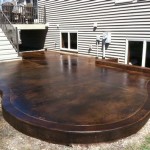The Benefits of a Natural Gas Patio Heater vs. a Propane Tank Patio Heater
Outdoor heating solutions extend the usability of patios and decks, allowing enjoyment of these spaces even during cooler months. When choosing a patio heater, homeowners are often faced with the decision between natural gas and propane-fueled models. Both offer effective heating, but key differences in fuel source, convenience, cost, and environmental impact influence the optimal choice for a particular setting.
Fuel Source and Availability
Natural gas heaters connect directly to a home's existing natural gas line, providing a continuous fuel supply. This eliminates the need for refilling tanks, a significant advantage for frequent heater use. Propane heaters, on the other hand, rely on portable propane tanks that require periodic refills. While propane tanks offer portability, allowing the heater to be moved easily, the need for refills can be inconvenient, especially during peak usage seasons.
Cost Considerations: Installation and Fuel
The initial installation cost of a natural gas heater is typically higher due to the need for professional connection to the gas line. However, the long-term operational costs are often lower due to the generally lower price of natural gas compared to propane. Propane heaters have a lower upfront purchase price but the recurring cost of refilling propane tanks can accumulate over time. The frequency of refills depends on usage, heater BTU output, and tank size. Calculating the long-term cost of each option based on estimated usage is essential for making an informed decision.
Convenience and Ease of Use
Natural gas heaters offer superior convenience with their uninterrupted fuel supply. Once installed, they are ready for use with the simple flip of a switch or turn of a knob. No tank refills are required, eliminating the hassle of transporting and exchanging tanks. Propane heaters, while portable, require monitoring of propane levels and timely refills. This can disrupt usage and necessitate trips to refill stations.
Environmental Impact
Natural gas is generally considered a cleaner-burning fuel than propane, producing fewer greenhouse gas emissions per unit of heat output. This makes natural gas heaters a more environmentally friendly option compared to propane heaters. However, both contribute to carbon emissions, and considerations regarding overall energy consumption remain important regardless of the fuel type.
Safety Considerations
Both natural gas and propane heaters require careful installation and operation to ensure safety. Natural gas leaks pose a significant safety risk, and professional installation is crucial for proper connection to the gas line. Propane tanks also require careful handling and storage to prevent leaks and potential fire hazards. Adhering to manufacturer guidelines and safety regulations is paramount for both fuel types.
Performance and Heat Output
Both natural gas and propane heaters offer comparable heat output, measured in British Thermal Units (BTUs). The BTU rating determines the heating capacity and the area a heater can effectively warm. Choosing the appropriate BTU rating depends on the size of the space and desired temperature increase. Both fuel types can achieve high BTU outputs, providing sufficient warmth for outdoor spaces.
Aesthetic Considerations and Placement Flexibility
Natural gas heaters, due to their fixed connection to the gas line, offer less placement flexibility compared to propane heaters. The location of the gas line dictates the possible placement of the heater. Propane heaters, being portable, can be positioned as needed, offering greater versatility in placement. Aesthetically, both types of heaters come in various designs and finishes to complement different outdoor décor styles.
Maintenance Requirements
Both natural gas and propane heaters require regular maintenance to ensure optimal performance and longevity. This includes cleaning the burner, inspecting for leaks, and ensuring proper ventilation. Natural gas heaters may require periodic professional inspections to check the gas line connection. Propane heaters require periodic tank inspections for rust or damage. Following manufacturer recommendations for maintenance is essential for both types of heaters.
Long-Term Value and Resale Value
The long-term value of a natural gas heater can be higher due to the convenience and lower operating costs associated with natural gas. A built-in natural gas line for a patio heater can also be a desirable feature for potential homebuyers, potentially increasing resale value. While propane heaters offer portability, they don't offer the same long-term value proposition in terms of operating costs or impact on resale value.

Outdoor Heaters Electric Vs Natural Gas Propane Sylvane

Infrared Vs Propane Patio Heater Which Is A Better Outdoor Electronicshub

Outdoor Heaters Electric Vs Natural Gas Propane Sylvane

Infrared Vs Propane Patio Heater Which Is A Better Outdoor Electronicshub

Outdoor Heater Guide 2024 Sylvane

Propane Patio Heater Guide Woodlanddirect Com

9 Best Patio Heaters To Stay Warm And Toasty In The Outdoors Time Stamped

9 Best Patio Heaters To Stay Warm And Toasty In The Outdoors Time Stamped

Outdoor Patio Heater Guide Webstaurant

9 Best Patio Heaters To Stay Warm And Toasty In The Outdoors Time Stamped
Related Posts








